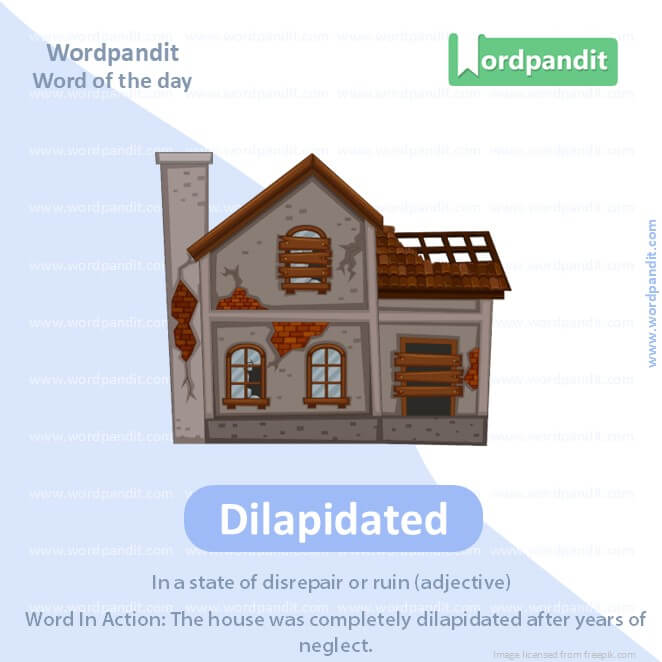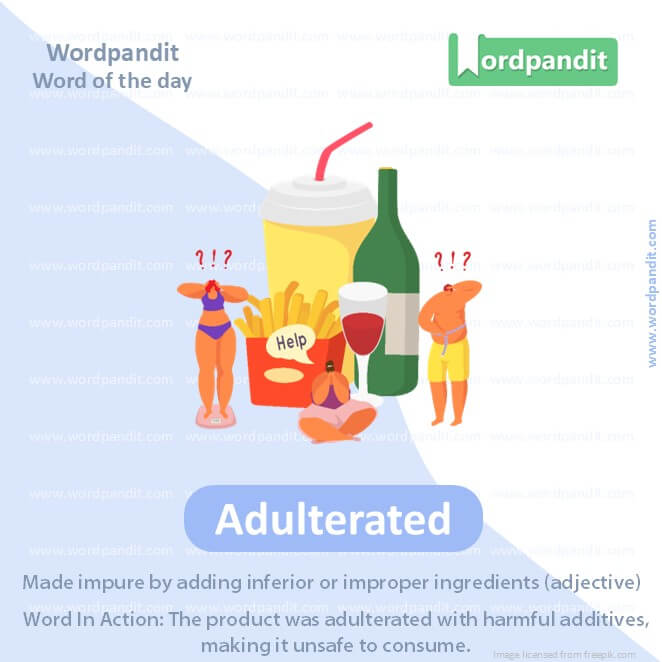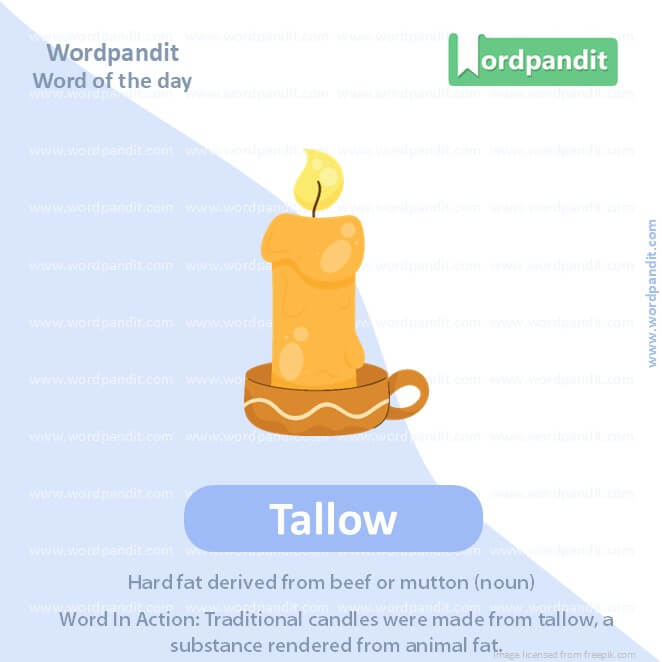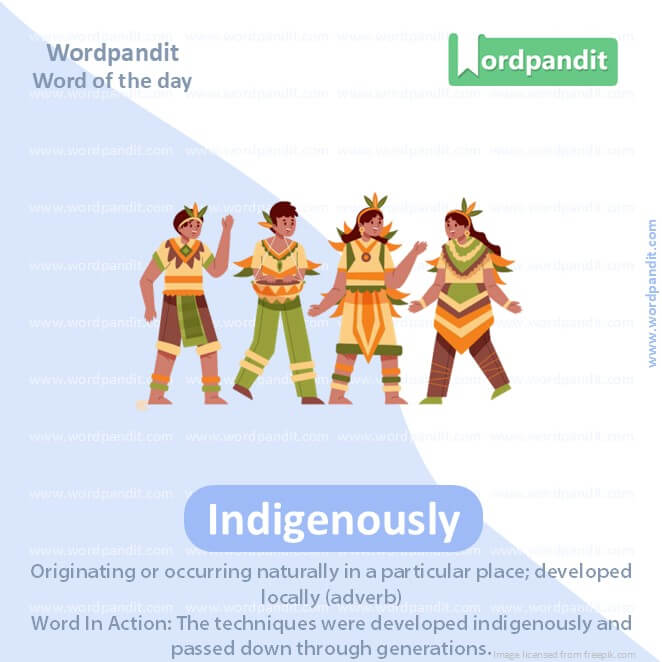Daily Vocabulary from Indian Newspapers and Publications
Welcome to Wordpandit’s Indian Vocabulary Hub
At Wordpandit, we understand the importance of staying rooted in the local context while expanding your language skills. This section focuses on enriching your vocabulary with words and phrases drawn from India’s leading newspapers and publications, ensuring you're learning vocabulary that is practical, relevant, and uniquely Indian.
Why Indian Sources Matter
We believe that the best way to master any language is by immersing yourself in local content. That’s why we carefully curate vocabulary from top Indian publications, including:
- The Hindu
- The Times of India
- The Economic Times
- Hindustan Times
- Live Mint
- The Indian Express
- And many others...
Stay Updated, Stay Relevant
With daily updates from Indian news sources, you’ll be consistently learning words that reflect the trends and shifts in Indian society and culture. Our focus is to provide vocabulary that enhances your understanding of the language in an Indian context.
How Wordpandit Supports Your Goals
Whether you’re preparing for exams, aiming to improve your professional communication, or simply want to stay connected with the latest Indian vocabulary, Wordpandit is here to guide you every step of the way.
Learn with a Practical Approach
Our interactive learning methodology includes real-world examples, engaging activities, and context-specific usage to ensure that every word becomes part of your active vocabulary.
Dive into Indian Vocabulary Today!
Why Choose Wordpandit?
Practical Learning: Focus on words you'll actually encounter in real-world reading, enhancing your comprehension and communication skills.
Diverse Content: From current affairs to scientific breakthroughs, our varied sources expose you to vocabulary across multiple domains.
Effortless Integration: Make Wordpandit a part of your daily routine. Just a few minutes each day can significantly boost your lexicon over time.
Your Path to Vocabulary Mastery
- Visit our Daily Vocabulary section regularly
- Explore new words and their usage in context
- Practice incorporating these words into your own writing and speech
- Track your progress as your vocabulary expands
Start Your Journey Today
Embark on your vocabulary enhancement journey with Wordpandit. By consistently engaging with our daily posts, you'll build a robust vocabulary that serves you well in academic, professional, and personal contexts.
Remember, a word a day keeps linguistic limitations at bay. Make Wordpandit your daily companion in the quest for vocabulary excellence!
WORD-1: Dilapidated
Context:
"The Chief Minister observed that many roads, such as those in Okhla and Chirag Dilli, were in a dilapidated condition, requiring urgent repairs." - The Hindu
Explanatory Paragraph:
The word dilapidated describes something that is in a state of severe disrepair or decay, often due to neglect. Buildings or objects can become dilapidated when they are not maintained properly.
Meaning: In a state of disrepair or ruin (adjective)
Pronunciation: dih-LAP-uh-dey-tid
Difficulty Level: ⭐⭐ (Easy)
Etymology: From Latin dilapidare, meaning "to destroy."
Synonyms & Antonyms:
Synonyms: decrepit, ruined, shabby, broken-down
Antonyms: pristine, new, well-maintained
Usage Examples:
- The old mansion was left in a dilapidated state after years of neglect.
- Many schools in rural areas are dilapidated and in need of renovation.
Cultural Reference:
The term is often used to describe neglected historical buildings.
Think About It:
What responsibilities do communities have to prevent buildings from becoming dilapidated?
Quick Activity:
Write down five items or places in your neighborhood that are in a dilapidated condition.
Memory Tip:
Imagine a "lap" running around something as it falls apart, to help recall "dilapidated."
Real-World Application:
Use "dilapidated" to describe rundown structures, furniture, or roads.
WORD-2: Adulterated
Context:
"The ingredient may have been adulterated with fat from multiple sources including beef tallow." - The Hindu
Explanatory Paragraph:
When something is adulterated, it has been made impure or inferior by adding foreign substances, usually lower quality ones. This often refers to food or drink that has been contaminated.
Meaning: Made impure by adding inferior or improper ingredients (adjective)
Pronunciation: uh-DUHL-tuh-rey-tid
Difficulty Level: ⭐⭐ (Easy)
Etymology: From Latin adulterare, meaning "to corrupt."
Synonyms & Antonyms:
Synonyms: contaminate, taint, degrade
Antonyms: purify, cleanse
Usage Examples:
- The milk had been adulterated with water to increase volume.
- The quality of the product was ruined by adulterated ingredients.
Cultural Reference:
Adulteration scandals often make news, especially in the food and pharmaceutical industries.
Think About It:
Why do you think companies risk their reputation by selling adulterated products?
Quick Activity:
List three foods that you think are commonly adulterated.
Memory Tip:
Remember "adult" in "adulterated" as something grown or changed, but in a bad way, to help recall its meaning.
Real-World Application:
In product quality control, "adulterated" is often used to flag impure or contaminated goods.
WORD-3: Tallow
Context:
"The ghee was adulterated with fat from multiple sources including beef tallow." - The Hindu
Explanatory Paragraph:
Tallow is a type of fat derived mainly from the fat of beef or mutton. It has various uses, from making candles to cooking, though in modern times, it is sometimes seen as an adulterant in food products.
Meaning: Hard fat derived from beef or mutton (noun)
Pronunciation: TAL-oh
Difficulty Level: ⭐⭐ (Easy)
Etymology: From Old English tealu, meaning "fat."
Synonyms & Antonyms:
Synonyms: grease, fat, lard
Antonyms: none
Usage Examples:
- In the past, tallow was commonly used for making candles.
- Beef tallow can be used for frying food due to its high smoke point.
Cultural Reference:
Tallow candles were popular in the 19th century before electric lighting became common.
Think About It:
What are some modern substitutes for tallow in cooking or manufacturing?
Quick Activity:
Research and list two products that still use tallow today.
Memory Tip:
Think of "tallow" as "allow fat," to remember its association with hard animal fats.
Real-World Application:
Tallow is still used in specialty cooking and the manufacturing of soap and candles.
WORD-4: Indigenously
Context:
"Developed indigenously under the National Supercomputing Mission." - The Hindu
Explanatory Paragraph:
The word indigenously refers to something developed or produced within a specific country or region, typically using local resources and expertise. It highlights self-reliance and the use of native capabilities.
Meaning: Originating or occurring naturally in a particular place; developed locally (adverb)
Pronunciation: in-DIJ-uh-nuhs-lee
Difficulty Level: ⭐⭐⭐ (Intermediate)
Etymology: From Latin indigenus, meaning "native or original."
Synonyms & Antonyms:
Synonyms: locally, natively, domestically
Antonyms: externally, globally, foreignly
Usage Examples:
- The company prides itself on developing products indigenously using local talent.
- Most of the technologies used in the project were indigenously created.
Cultural Reference:
Indigenous innovation has become a key focus for many countries seeking self-reliance in sectors like defense, technology, and healthcare.
Think About It:
Why is it important for countries to develop technologies indigenously, especially in critical sectors?
Quick Activity:
List three indigenously developed technologies or products in your country.
Memory Tip:
Link "indigenously" to "indigenous" to remember its connection to something that originates from within a region or country.
Real-World Application:
The term "indigenously" is often used in discussions about national innovation and self-sufficiency, particularly in technology, defense, and industry.
WORD-5: Stridently
Context:
"The Left, and especially CPI(M), have always stridently opposed the RSS and other Hindutva forces." - The Hindu
Explanatory Paragraph:
Stridently means in a loud, forceful, and often harsh way, typically to express strong opinions or opposition. When someone acts stridently, they make their stance very clear, often with intensity.
Meaning: In a loud, forceful, or harsh manner (adverb)
Pronunciation: STRY-dent-lee
Difficulty Level: ⭐⭐⭐ (Intermediate)
Etymology: From Latin stridere, meaning "to make a harsh noise."
Synonyms & Antonyms:
Synonyms: loudly, vehemently, forcefully, vociferously
Antonyms: softly, quietly, mildly
Usage Examples:
- She stridently defended her position during the heated debate.
- Environmentalists have stridently opposed the new development project.
Cultural Reference:
The word is often used to describe activists or political groups who take a firm and loud stance on issues, especially in opposition to others.
Think About It:
Can strident opposition be effective, or does it sometimes alienate others? Why?
Quick Activity:
Write down a time when you strongly opposed something. How did you express your opposition?
Memory Tip:
Think of "stridently" as "strike loudly" to recall its meaning of acting forcefully or harshly.
Real-World Application:
"Stridently" is used in politics, protests, and debates where individuals or groups express strong and often forceful opinions.


















